Just a few years ago, Americans were overwhelmingly optimistic about the power of new technologies to foster an informed and engaged society. More recently, however, that confidence has been challenged by emerging concerns over the role that internet and technology companies — especially social media — now play in our democracy.
In a series of new reports, Gallup and Knight Foundation explore the shifting landscape and how policymakers and technology companies might adapt to face evolving challenges concerning a host of issues, including how to control the spread of misleading and harmful content as well as false political ads online.
Our research:
- JUST RELEASED: Free Expression, Harmful Speech, and Censorship in a Digital World: As the COVID-19 crisis deepens, Americans realize the threat of misinformation to people’s health, and the country’s democracy, however are undecided on how best to remedy the problem while preserving their deeply-held value of free expression. Download the executive summary and report. View the data and questionnaire.
- Techlash? America’s Growing Concerns with Major Technology Companies: For Americans, the techlash is real, widespread, and bipartisan, the report finds. The research highlights the areas of deepest concern, including the spread of misinformation, election interference and data privacy. Download the report.
- Most Oppose Micro-Targeting of Political Ads: While the presidential candidates pour hundreds of millions of dollars into digital advertising for the 2020 election, the research finds that Americans overall favor stricter regulation of ads, and that there is a widespread, bipartisan skepticism for the tech companies’ current handling of political advertising online. View the research.
Our Findings:
How do Americans view current issues in internet technology? Here are the main findings from the three reports. Graphics by Valerio Pellegrini
1) Americans have largely negative views of major internet and technology companies’ impact on society.
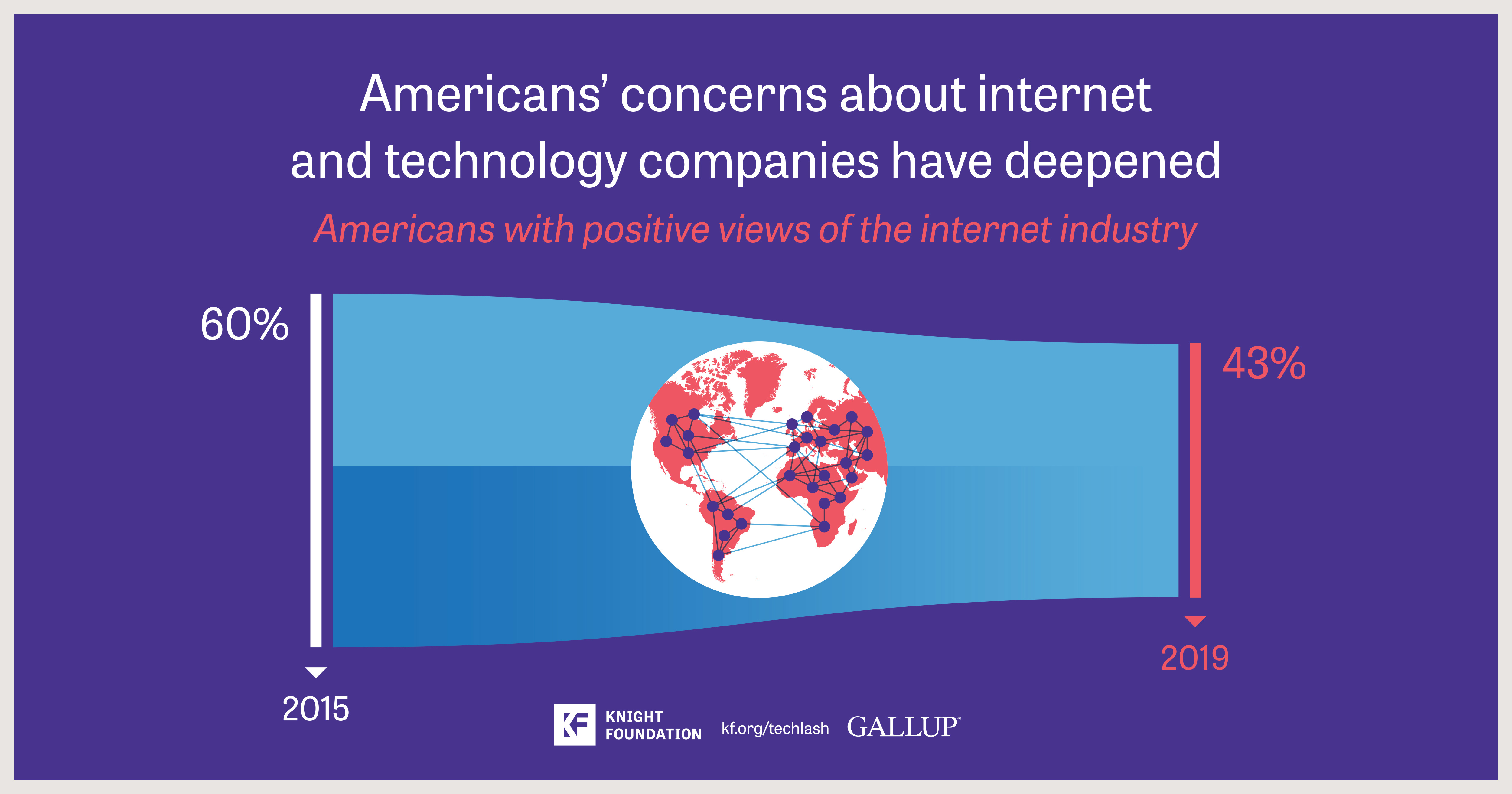
Their top concern relates to the amplification of misinformation on the internet.
- 74% of Americans are very concerned about the spread of misinformation on the internet. Despite a partisan gap, majorities of both Democrats (84%) and Republicans (65%) are very concerned about this issue.
- 68% are very concerned about the privacy of personal data stored by internet and technology companies, and 56% are very concerned about hate speech and other abusive or threatening language online.
2) The public believes internet and technology companies have too much power — a sentiment held across all demographic and political groups.
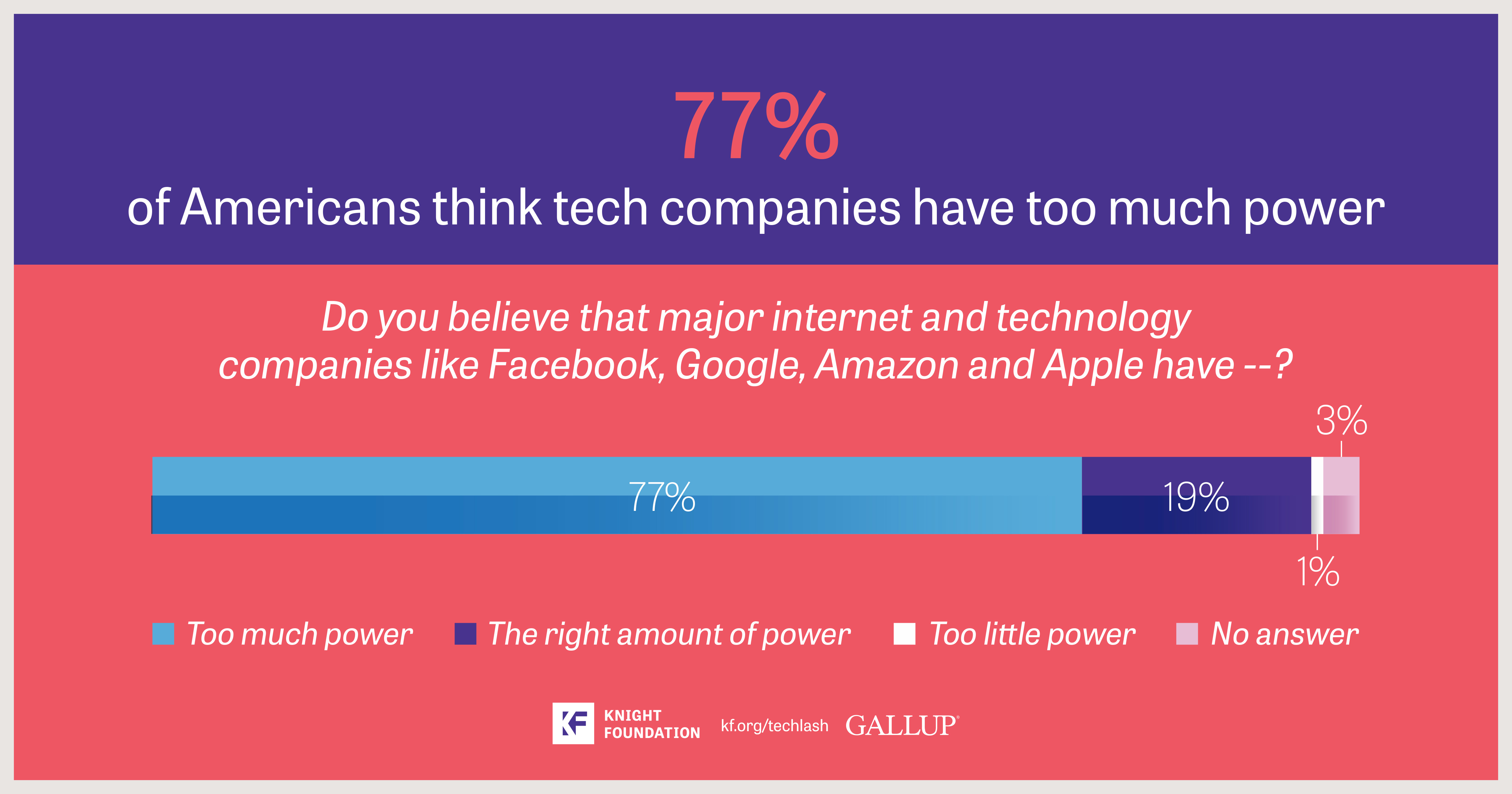
- 77% of Americans say major internet and technology companies like Facebook, Google, Amazon and Apple have too much power.
- Americans are equally divided among those who favor (50%) and oppose (49%) government intervention that would require internet and technology companies to break into smaller companies.
3) Americans across the political and demographic spectrum say political leaders are not paying enough attention to technology issues.
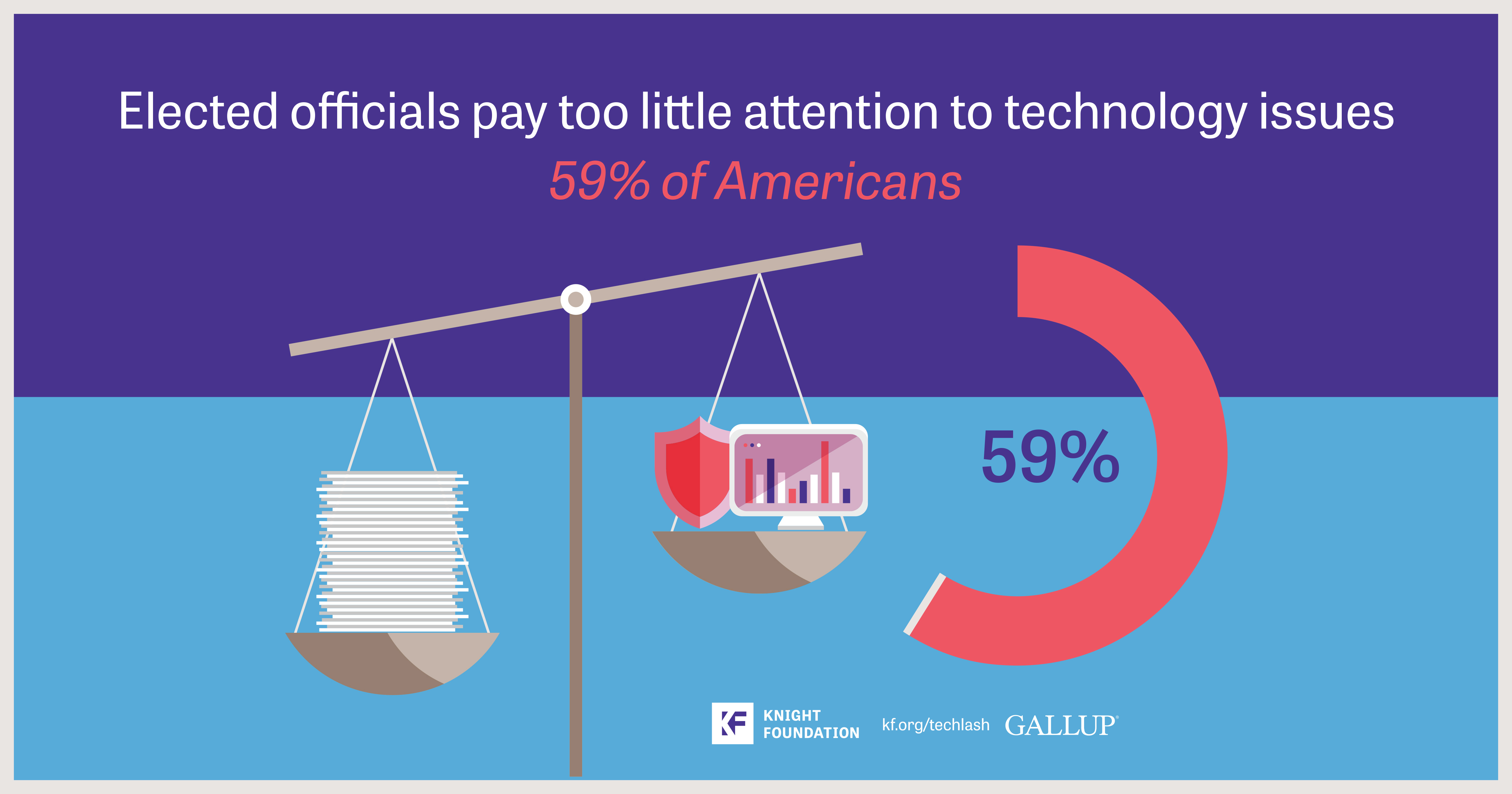
- 59% of Americans believe elected officials and political candidates are paying “too little” attention to issues dealing with technology and technology companies.
4) Americans prefer social media apps and sites to be places of open expression.
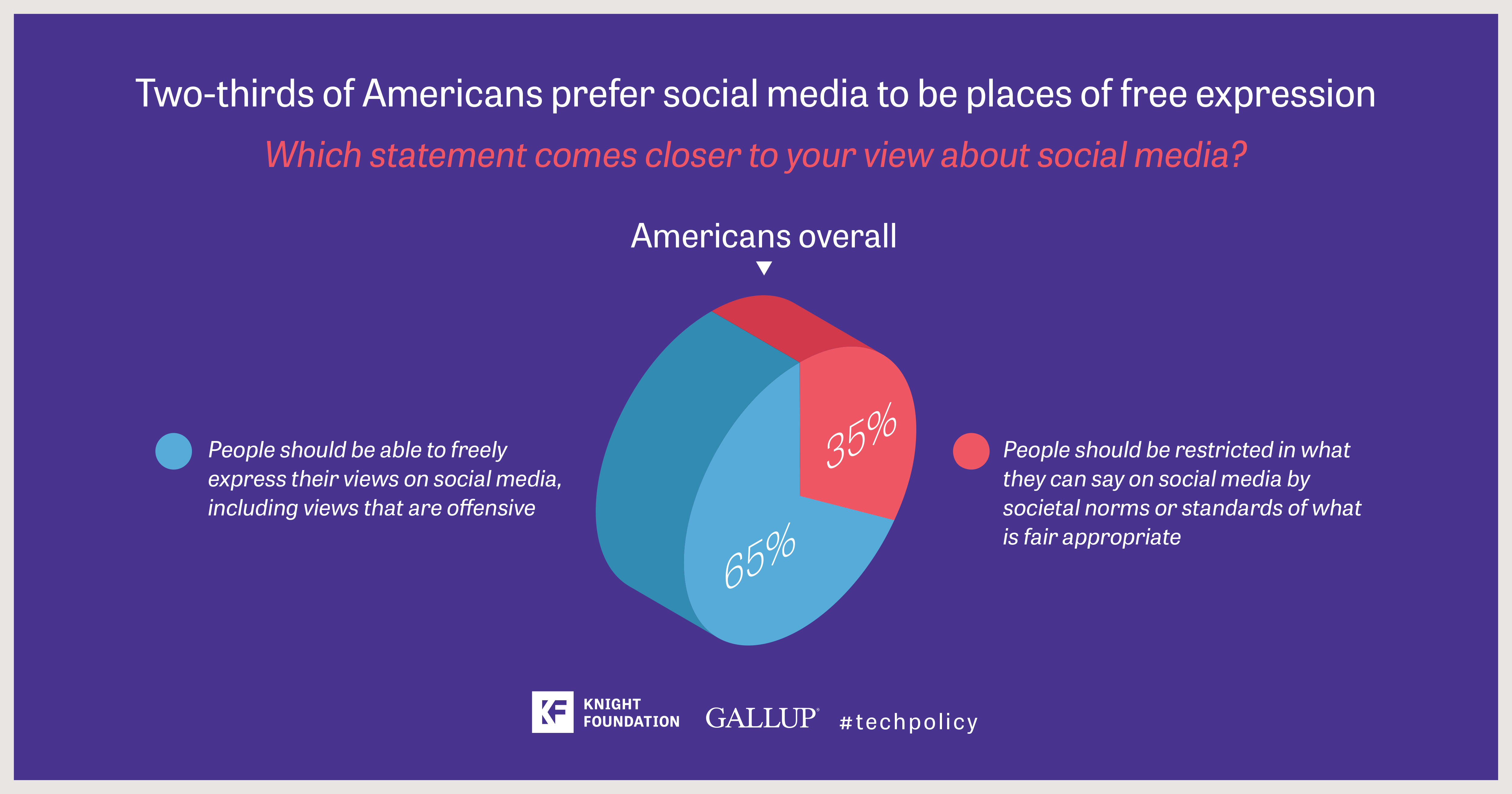
- Nearly two-thirds of Americans (65%) favor allowing people to express their views on social media, including views that are offensive, over restricting what people can say on social media based on societal norms or standards of what is fair or appropriate (35%).
5) Americans do not trust major internet companies to make the right decisions related to harmful content, but they trust the government less.
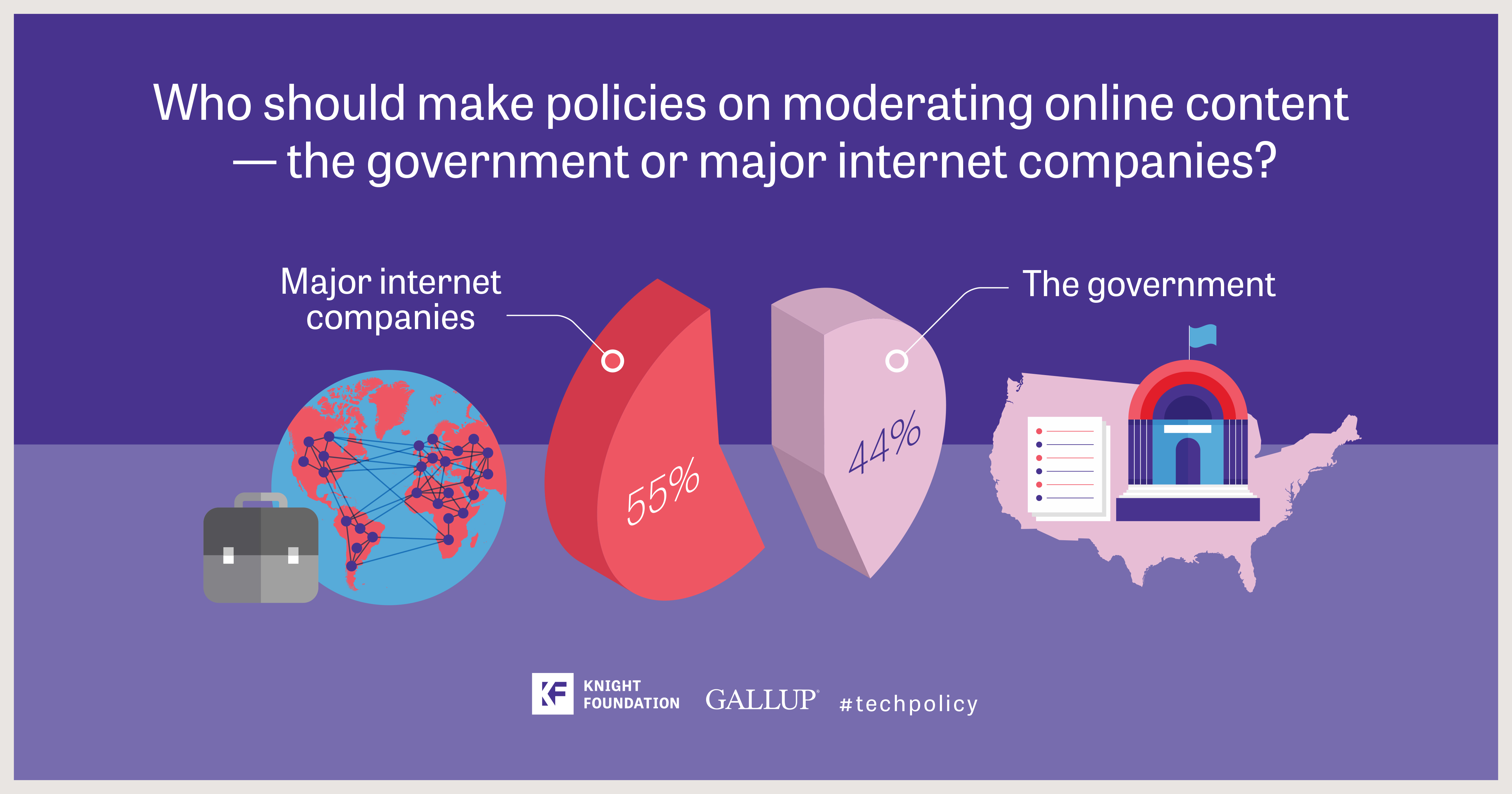
- Americans marginally favor major internet companies setting policies about what people can post on their websites and apps without government involvement (55%) rather than government setting limits or guidelines about such content (44%).
6) Even as Americans voice a preference for open expression, there are several forms of online content that many say should be restricted or never allowed.
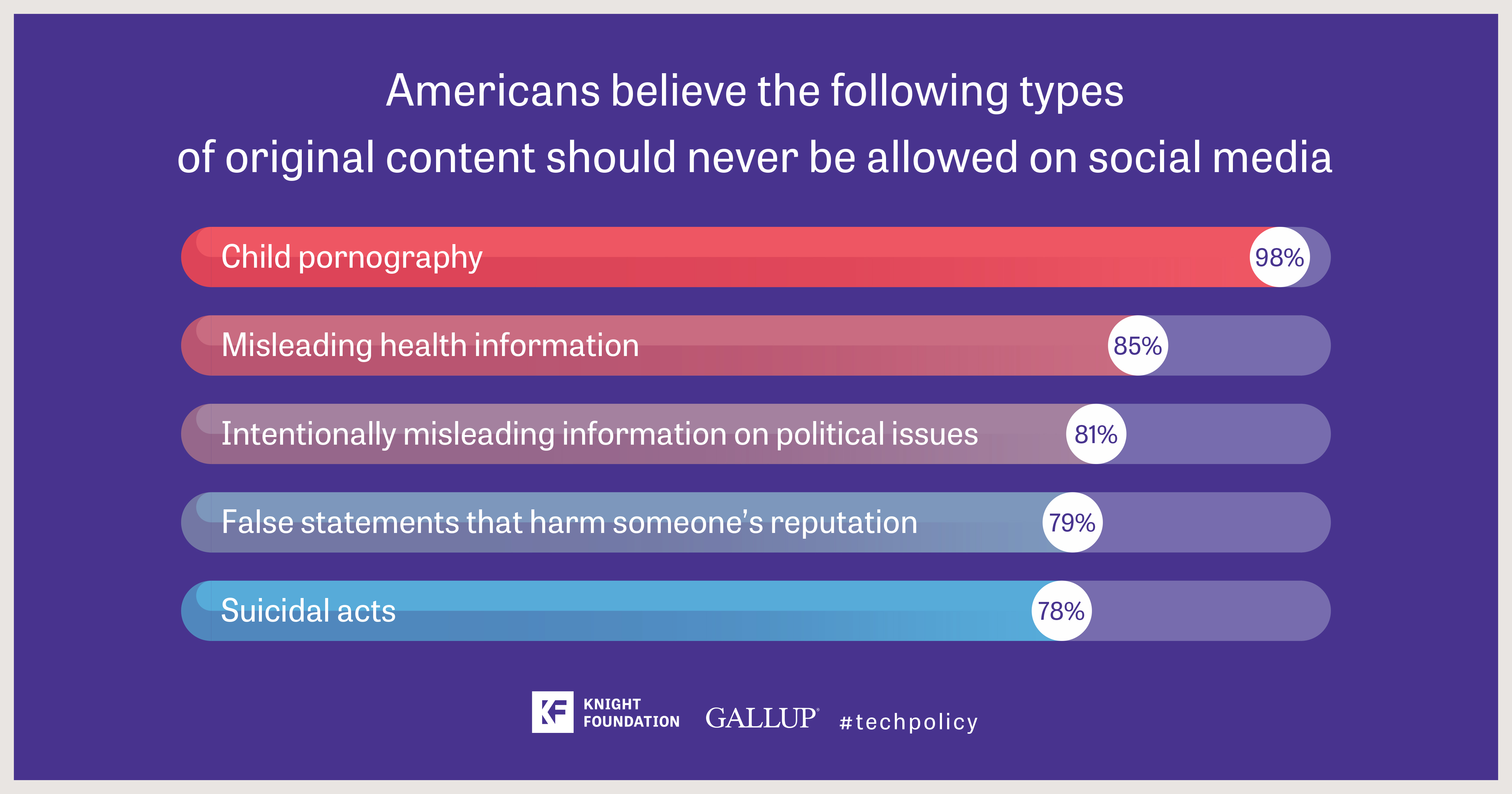
- Nearly all Americans (98%) say child pornography should never be allowed on social media, and particularly important today, 85% say misleading health information also should be prohibited.
7) Americans’ opinions of content oversight boards are largely favorable, tending to prefer them to social media companies or the government to make decisions about what can and cannot appear on social media websites and apps.

- More than 8 in 10 Americans say they think a content oversight board is a “good idea” (54%) or “very good idea” (27%), while 12% say it is a “bad idea,” and 7% say it’s a “very bad idea.”
8) Americans are somewhat divided on the impact of Section 230 of the Communications Decency Act, which largely shields major internet companies from liability for content posted on their websites and apps by third parties.

- Fifty-four percent say the law has done more harm than good because it has not made the companies accountable for illegal content on their sites and apps; however, almost two-thirds (66%) of Americans say they support keeping the existing law that shields major internet companies from liability.
9) Americans support banning false online political ads.

- Solid majorities of Americans say that political ads containing outright falsehoods — including targeting supporters of an opposing candidate with ads that give the wrong election date (81%) — should be banned by social media platforms.
10) Americans favor increased transparency and an end to microtargeted political ads.

- Seventy-two percent of Americans say political campaigns should not be able to target users for ads based on their data; rather, all users should see the same ads.
- Fifty-nine percent support requiring political ads to disclose who paid for them.









